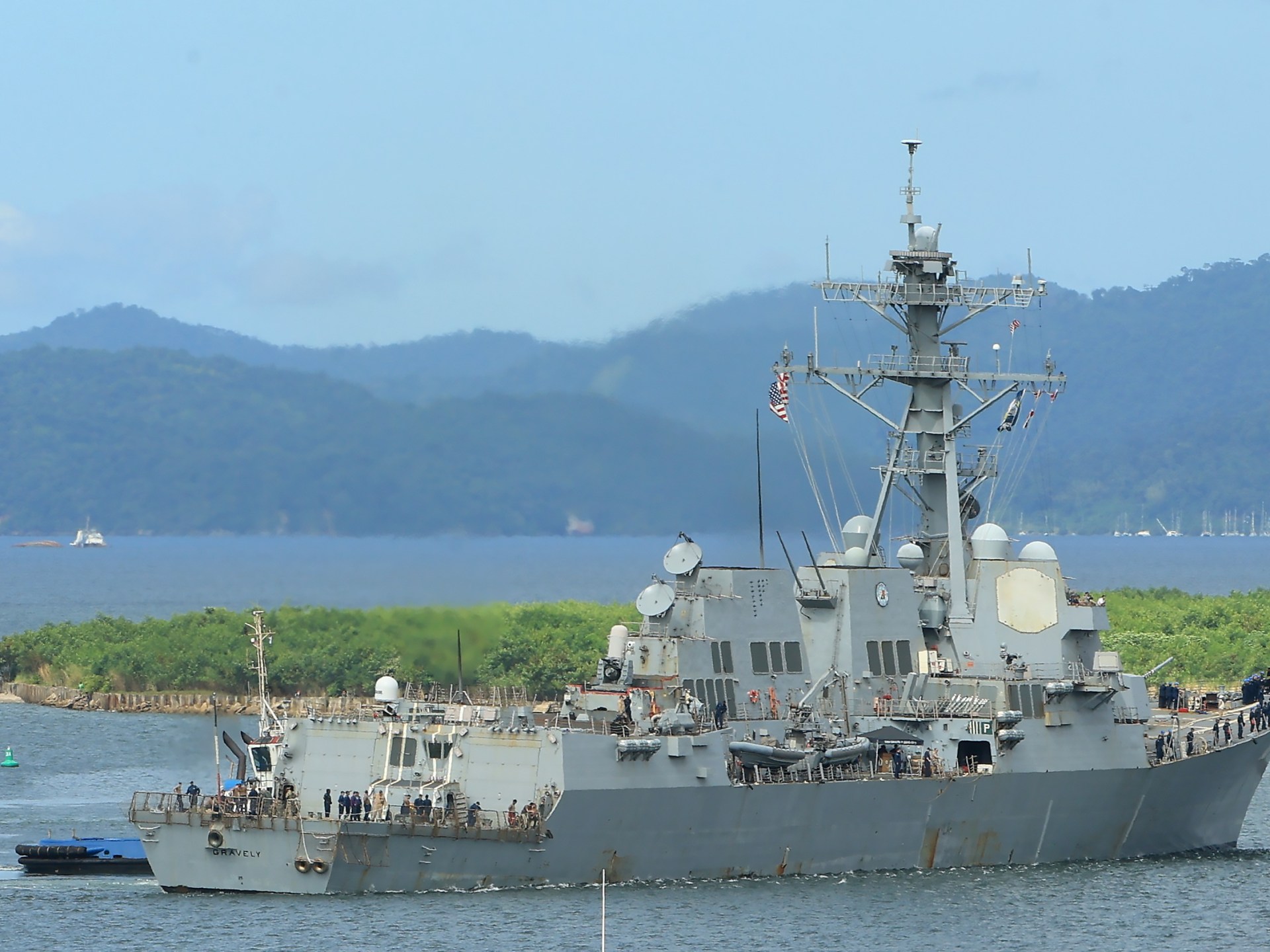Published On 3/11/2025
|
Last update: 23:53 (Mecca time)
The Caribbean Sea is witnessing a state of American military mobilization, in light of the rehabilitation of naval and air bases in Puerto Rico, the Virgin Islands, Grenada, and Trinidad and Tobago, in a step that military expert Brigadier General Elias Hanna described as “going beyond the fight against drug smuggling.”
Hanna said – during his analysis of the military scene in the Caribbean – that the official declared goal is to “strike boats and prevent drug smuggling” towards the United States.
But he pointed out that statistics confirm that most of the smuggling operations come from Colombia towards the American West, which makes the size of the current crowd “disproportionate to the mission,” ruling out at the same time America launching a ground invasion of Venezuela.
These movements coincide with the presence of American bases in Guantanamo, Panama, and Colombia, in addition to the deployment of large-scale radars.
According to the military expert, these steps come within the context of an American national strategy aimed at protecting internal security, preserving borders, and securing strategic natural resources, especially in Venezuela and the lithium triangle between Bolivia, Peru, and Argentina.
He concludes that the current stage represents the beginning of a new strategy for the United States in the Caribbean, which combines:
- Military buildup.
- Control of natural resources.
- Political pressure on Venezuela.
- Maintaining a minimum of direct military risks to US forces.
The United States had deployed naval ships in the Caribbean, and sent F-35 fighter jets to Puerto Rico, as part of a military operation aimed, it said, at stopping drug smuggling into American territory.
More than 15 American raids on alleged drug smuggling boats in the Caribbean resulted in the deaths of at least 65 people in recent weeks, sparking criticism from the governments of countries in the region.
As for longer-term goals, Hanna believes that they may include “flexing muscles” politically and militarily, or pressuring the Venezuelan regime to change its behavior, or pushing President Nicolas Maduro to negotiate natural resources, pointing to the US administration’s interest in rare resources and advanced military industries.
Current American operations – according to the military expert – do not require notification of Congress in accordance with the War Powers Act of 1973, as the US President can deploy forces for a period of 60 days without the need for prior approval, with the possibility of renewal for an additional 30 days.
Also, these movements are far from a direct threat to the American army, even though strategic bombers flew in the region.
The United States has mobilized a naval force off the coast of South America, raising fears of an invasion of Venezuela and speculation that US President Donald Trump may try to oust its president, Maduro.
Trump accuses the Maduro administration of cooperating with a Venezuelan crime gang and managing drug trafficking and irregular immigration to the United States.

